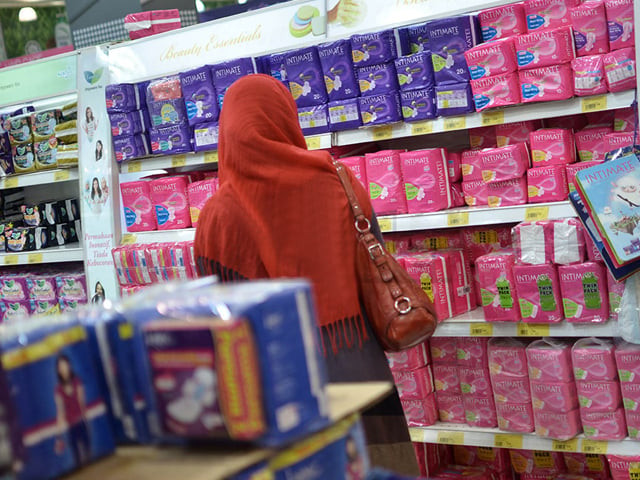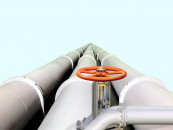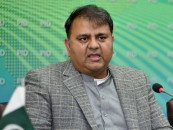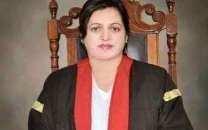LHC takes up plea against 40% tax on sanitary pads
Petition calls upon govt to abolish what it terms 'period tax', describing it as an act of gender-based discrimination

A division bench of the Lahore High Court, Rawalpindi Bench, admitted for hearing a petition challenging the imposition of up to 40 per cent in taxes, levies, and customs duties on sanitary pads across Pakistan.
The petition has been filed under Article 199 of the Constitution by Advocate Mahnoor Umar, a lawyer and women’s rights campaigner, in the public interest and for the welfare of women.
According to the petition, the petitioner notes that women constitute approximately 48.51 per cent of Pakistan’s total population — around 151 million people — yet sanitary pads remain subject to taxation of up to 40 per cent, a burden which, critics argue, effectively penalises women for their biology.
The petition calls upon the government to abolish what it terms the 'period tax', describing it as an act of gender-based discrimination. Citing the Sales Tax Act of 1990, the petition points out that locally manufactured sanitary pads attract 18 per cent sales tax, while imported pads and raw materials incur a further 25 per cent customs duty.
According to UNICEF Pakistan, when combined with additional local taxes, the overall effect is a 40 per cent increase in the retail cost of these essential hygiene products. The petitioner argues that such taxation infringes constitutional guarantees of equality, human dignity, social justice, and freedom from exploitation.
In a society where menstruation is still widely considered a taboo subject, these taxes make products related to feminine hygiene even less accessible to women and girls. A standard pack of 10 sanitary pads currently costs around Rs450, while Pakistan’s average monthly income stands at approximately $120 — meaning that for low-income households, the cost of menstrual products is comparable to that of a single meal.
The petition maintains that removing the 40 per cent tax would render sanitary pads affordable for millions of women. A joint study by UNICEF and WaterAid (2024) found that only 12 per cent of Pakistani women use commercially produced sanitary pads, with the vast majority relying on cloth or other substitutes — many without access to clean water or adequate sanitation facilities.
Reducing prices, the petition suggests, would not only enhance women’s health but also contribute to a broader transformation in social attitudes, enabling women and girls to pursue education and employment with dignity and confidence.
Accordingly, the petition prays that the tax on sanitary pads be declared unconstitutional, and that all associated levies and customs duties be abolished. It further requests the court to instruct the government and relevant authorities to zero-rate the production and sale of sanitary pads, and to ensure their free provision in educational institutions for girls.
Representing the petitioner, Advocate Ahsan Jahangir Khan stated that the case is founded upon the constitutional principles of equality, dignity, and social justice. “This is not merely a matter of finance,” he remarked, “but a struggle to restore women’s dignity. Should the court declare this tax unconstitutional, the judgment could set a powerful precedent for future policies on women’s health, environmental standards, and access to education.”
The petition further notes that numerous countries have already recognised the taxation of menstrual products as discriminatory. India abolished its 'Tampon tax' in 2018, Nepal’s Supreme Court ordered its removal in 2025, and the United Kingdom eliminated it entirely in 2021. Through this petition, Mahnoor seeks to ensure that Pakistan joins the ranks of progressive nations that have taken similar steps.
The petition concludes: “If sanitary products become affordable, girls will remain in school, women will work with confidence, and society as a whole will be healthier. Menstruation is not a source of shame but a sign of awareness — and when women begin to speak about their health and dignity, they take the first step towards true freedom.”
The bench, comprising Justice Jawad Hassan and Justice Malik Muhammad Owais Khalid, issued notices to the federal government, the chairman of the Federal Board of Revenue, the Ministry of Finance, and the National Commission for Human Rights, directing them to submit detailed response, clause-by-clause. The next hearing is scheduled for the first week of November.




















COMMENTS (1)
Comments are moderated and generally will be posted if they are on-topic and not abusive.
For more information, please see our Comments FAQ